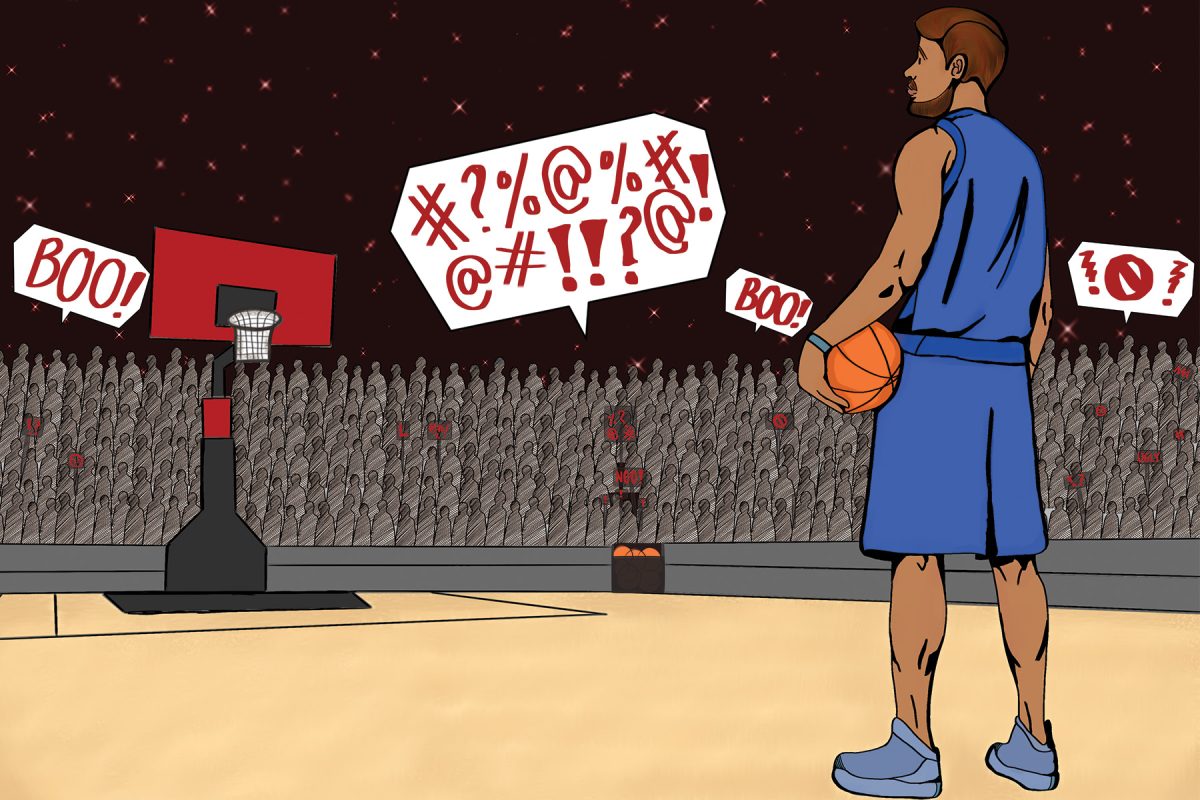Fans packed the United Center for the Golden State Warriors versus Chicago Bulls game on Jan. 12. During halftime, the Bulls celebrated the inaugural Ring of Honor class. This year’s class included a total of 13 players, coaches and management staff who have made an outstanding contribution to the Bulls, along with the entire 1995-96 team that finished 72-10.
What was supposed to be a night of celebration was ruined by rude fan behavior. As the name of Jerry Krause, former Bulls general manager, was read off, boos erupted from the crowd. Just moments later, Krause’s widow, Thelma Krause, was displayed on the jumbotron, crying as the boos continued.
The booing of Jerry Krause on a night meant for celebration for the work he had done for the Bulls was completely disrespectful. It was shameful. It was classless. For people to have the audacity to direct that behavior to his widow was also saddening. So what about the past? That doesn’t justify the rude behavior. Being rude in the present isn’t going to change what has already happened. Fans should’ve had more respect in that moment.
This behavior doesn’t only exist at the professional level, but also at high school sporting events. Fans have directed negative remarks to student athletes and coaches.
Many fans are passionate about their sport or favorite team, which is great. But a line must be drawn when fan behavior becomes too extreme. That line is when hate messages, comments and other forms of harassment are directed toward athletes or coaches because of mistakes or decisions that fans disagree with.
It’s easy to sit behind a TV and criticize every play, moment or decision, when in reality, an in-game decision might have to be made within seconds. We as fans need to understand that not everything will happen exactly the way we want it to. Mistakes happen. Players and coaches are human too. They aren’t robots.
To combat this extreme fan behavior, put respect first. Understand the situation of others. Sideline the negativity and put positivity forward.


